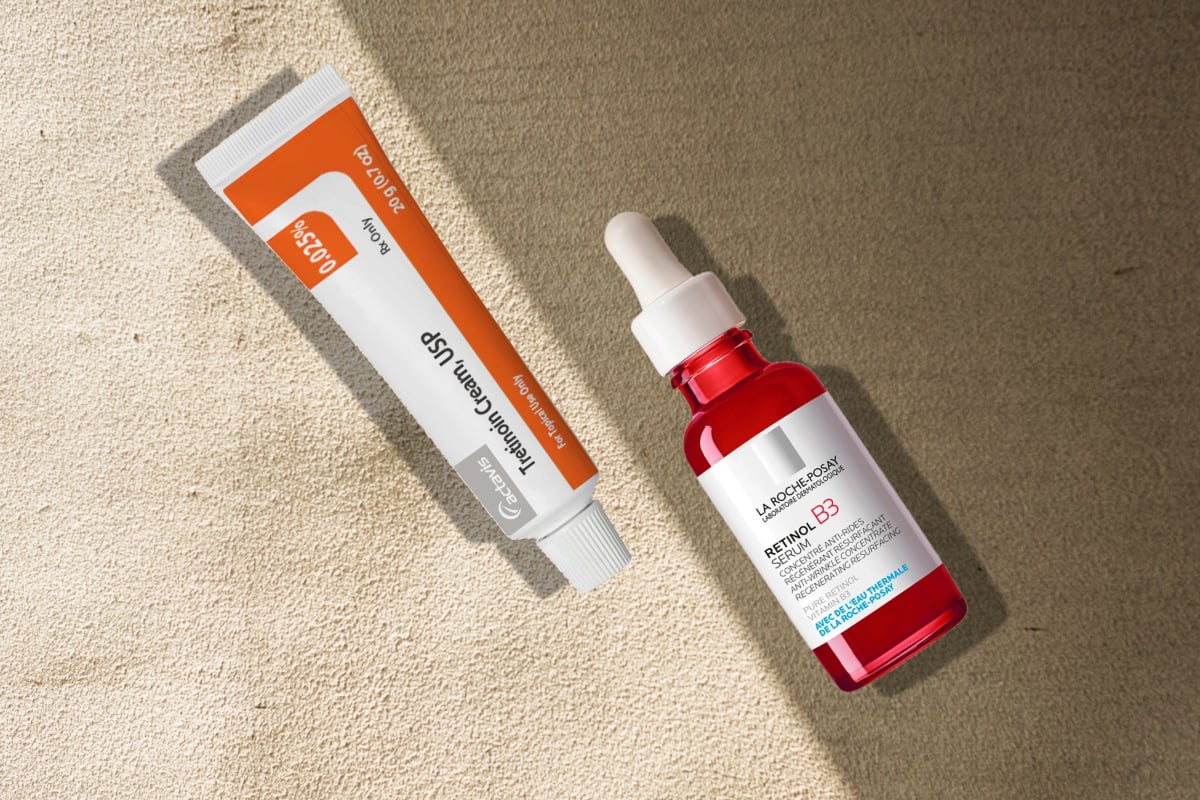Get ready for a rising star in the world of beauty, kojic acid. No need to panic at the ‘acid’ part; it’s not a rough exfoliant. Kojic acid is in its own class, with a reputation for brightening skin, fading acne blemishes, and reversing sun damage. Curious about what makes kojic acid stand out? We’ll teach you how to make it work for you and smoothly integrate it into your skincare routine.
What is kojic acid?
Kojic acid is a byproduct of certain fungi or fermented rice. Its name comes from the Japanese word ‘koji’, meaning ‘steamed rice.’ But here’s the twist – instead of exfoliating skin like most acids, kojic acid targets the production of skin pigment by putting a leash on an enzyme called tyrosinase, reducing dark spots and promoting a balanced skin tone.
How kojic acid benefits the skin
Brightens dark patches
Kojic acid is a natural skin-brightening agent known for its ability to address hyperpigmentation, acne marks, and other blemishes. Here’s how it works: The enzyme tyrosinase, when hyperactive, triggers excess pigment production, leading to hyperpigmentation. But with topical application of kojic acid, it’s like putting up a stop sign to tyrosinase activity. Doing so reduces the excess melanin accumulated in skin cells, which means those dark patches gradually fade away.[1]
Protects skin
Besides lightening your skin, kojic acid is a potent antioxidant that safeguards your skin against free radicals, cell-damaging molecules caused by UV and pollution.[2] Antioxidants are worth your attention as they protect against dark spots and premature aging signs. They also reduce collagen breakdown and skin inflammation.
Gently exfoliates
Kojic acid is a gentle exfoliator that removes dead cells and reveals a brighter, fresher layer of skin underneath. Its mild nature means it can exfoliate the top layer of the skin without causing the irritation or redness common with harsher exfoliants.
Kojic acid side effects
Despite being gentler than other skin brighteners like glycolic acid or hydroquinone, kojic acid may still cause mild side effects. These include rashes, redness, and irritation. Hence, it’s wise to tread lightly when introducing new ingredients to your skin. Do a patch test to see how your skin responds to kojic acid before diving in fully.
Related: How To Exfoliate Sensitive Skin At Home
How to add kojic acid to your routine
Kojic acid is often formulated in a variety of skincare products, from serums and creams to gels. Who’s the ideal user, you ask? Virtually anyone looking to illuminate their complexion and tackle uneven skin tone. However, those with particularly sensitive skin should proceed with a touch of caution.
For best results, apply kojic acid products after cleansing to allow maximum absorption. If it’s a serum, use it before your moisturizer, and if it’s a gel or moisturizer, use it after your serum and before sunscreen.
You ask, we answer
In the quest for the glowing skin, here are quick answers to some common questions surrounding kojic acid for skincare:
- Can you use kojic acid every day?
Yes, but start slow to see how your skin responds. If you notice redness or irritation, reduce the frequency of use or discontinue the product.
- Is kojic acid suitable for sensitive skin?
There shouldn’t be a problem using kojic acid on sensitive skin. However, it’s best to do a patch test first and start with a low concentration.
- How long does it take to see results with kojic acid?
The timeline for visible results with kojic acid varies depending on the skin’s condition. Generally, consistent use over a period of 8-10 weeks can lead to visible changes in skin appearance. Remember, skincare is a marathon, not a sprint, so patience and consistent application are key.
- Is kojic acid safe to use during pregnancy?
While kojic acid is generally considered safe during pregnancy, it’s best to consult a dermatologist before using new skincare ingredients.
- Can kojic acid be used with other brightening ingredients?
Yes, kojic acid can be used in combination with other skin lightening ingredients, including vitamin C, niacinamide, arbutin, and azelaic acid.
- Can kojic acid be used with other exfoliants?
There shouldn’t be a problem using kojic acid with other exfoliants. However, overusing exfoliating products can strip the skin and cause irritation. Consider using one in the morning and the other at night to avoid over-exfoliation.
- Can kojic acid be used with retinol and vitamin C?
Yes, it’s safe to use kojic acid with both retinol and vitamin C, but it’s essential to be mindful. Retinol, vitamin C, and kojic acid are all active ingredients, and using them together may be too much for sensitive skin. One approach might be to use one in the morning and another in the evening to lessen the likelihood of irritation.
Sources
- Zilles JC, Dos Santos FL, Kulkamp-Guerreiro IC, Contri RV. Biological activities and safety data of kojic acid and its derivatives: A review. Exp Dermatol. 2022 Oct;31(10):1500-1521. doi: 10.1111/exd.14662. Epub 2022 Aug 23.
- Eslmifar, Masoumeh & Khezri, Khadijeh & Saeedi, Majid. (2019). Kojic acid applications in cosmetic and pharmaceutical preparations. Biomedicine & Pharmacotherapy. 110. 582-593. 10.1016/j.biopha.2018.12.006.




![Does resveratrol in red wine benefit your skin? While sipping on a glass of red wine can be a delightful experience, relying on it for skincare benefits is not the best idea. Sure, red wine contains a smidge of resveratrol, but let's put things into perspective. The concentration of resveratrol in red wine is relatively low. Red wines, specifically Pinot noir from France, typically contain 0.361-1.972 mg of resveratrol per liter.[8] To hit that reference dose of 500mg of resveratrol, you'd need to drink a lot of wine. We're talking about downing anywhere from 100 to 1000 glasses per day. It's a scene straight out of a wine lover's wildest dreams, but definitely not the healthiest approach. Resveratrol Benefits for Skin](https://womensconcepts.com/wp-content/uploads/2022/03/Resveratrol-Benefits-for-Skin.jpg)
